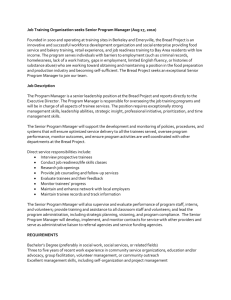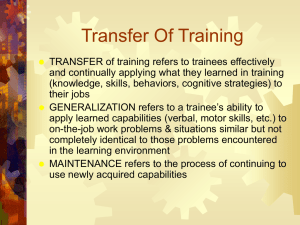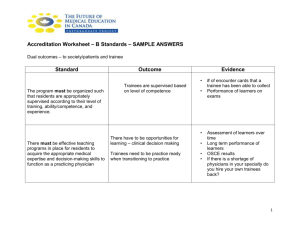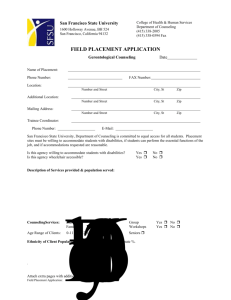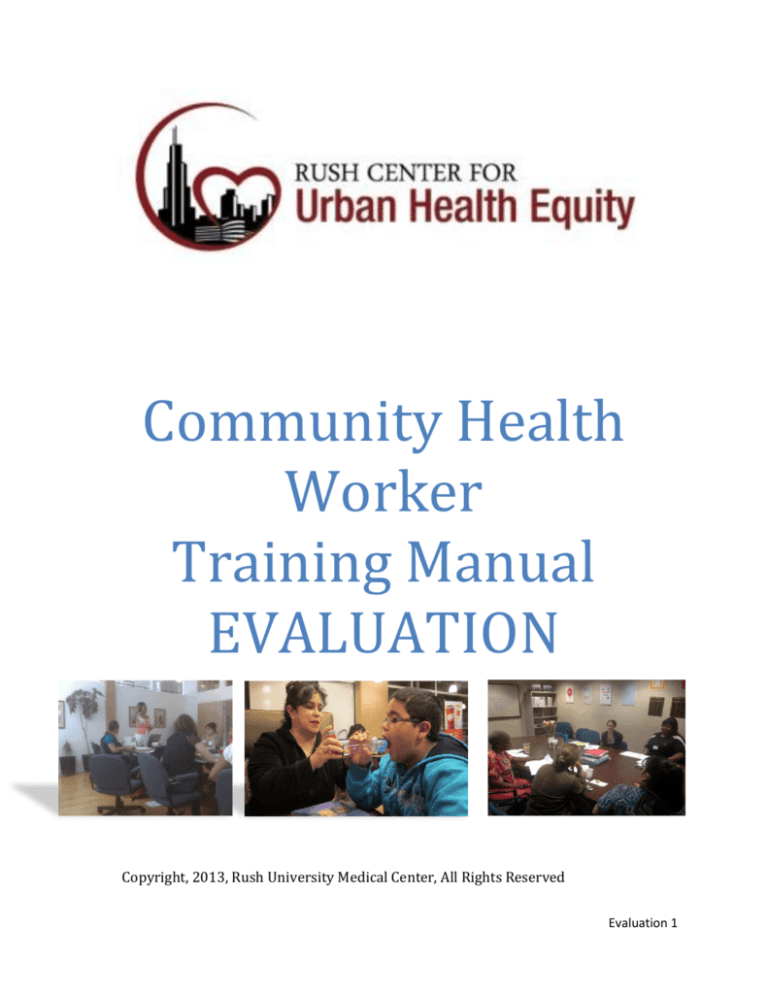
Community Health
Worker
Training Manual
EVALUATION
Copyright, 2013, Rush University Medical Center, All Rights Reserved
Evaluation 1
Evaluation
Evaluation is a critical step for all trainings. Throughout, trainees have been completing
pre- and post-examinations of their knowledge. However the true test of their skills is if
they can apply this knowledge in a real-life situation.
The following is the training evaluation performed with the asthma/obesity trainees in
our study. We anticipate others will modify this training as needed depending on the
content areas covered and the aims of the project.
Objectives
By the end of this evaluation, trainees will be able to:
1. Demonstrate they can correctly use a metered dose inhaler, a metered dose
inhaler with spacer, and a discus inhaler.
2. Demonstrate the application of self-management skills in a situation where the
CHW is trying to help a family struggling with multiple issues.
Estimated Time Required
It depends on the number of trainees. Each trainee takes about 10 minutes to
demonstrate the medications, and about 20 minutes for the role play.
Documents
-
Role play (see example in Extra Documents)
Role play evaluation form (see example in Extra Documents)
Medication steps evaluation form (see example in Extra
Documents)
Materials
Demonstrator metered dose inhaler, spacer, discus inhaler
Other
You will need a quiet separate room from the main room where each trainee can be
tested alone.
You will need a minimum of 3 evaluators.
You will need an “actor” for the role plays.
Evaluation 2
Evaluation instructions
1.
2.
3.
4.
5.
6.
Trainees should know beforehand how they will be tested. They will get very
nervous about this. Reassure them.
Give everyone the role play to study beforehand.
Give everyone some time to practice with the demonstration devices.
Medication technique evaluation
i. Bring trainees one-by-one into a separate room.
ii. Face the trainee across from the evaluators.
iii. Give them the metered dose inhaler, spacer, and discus.
iv. Instruct them to show how to use each one.
v. When they have demonstrated all three and the evaluators are done
documenting, tell the trainee what they did right or wrong.
Role play evaluation
i. Bring trainees one-by-one into a separate room.
ii. Face the trainee across from the evaluators and next to the actor..
iii. Instruct them to be the CHW.
iv. You can decide if you want this to be a “first” visit (in which case they
need to evaluate needs and goals of the participant) or a follow-up visit
(where they will apply more self-management concepts. Give the CHW
clear instructions about which visit but do not tell them what to
specifically focus on. The actor needs to follow the same script and
pattern for each trainee..
v. Give them 20 minutes. You can warn them when time is ending.
vi. When they have completed the role play and the evaluators have
completed their documentation, give the trainee feedback.
Score forms
Final determination of CHW competencies
Many factors go into to the final determination of CHW competencies. Demonstrated
knowledge in pre- and post-tests as well as the medication demonstration test are
important. It is also important if CHWs can demonstrate they know how to draw out
participants, react to their needs, and apply self-management concepts.
Evaluation 3


